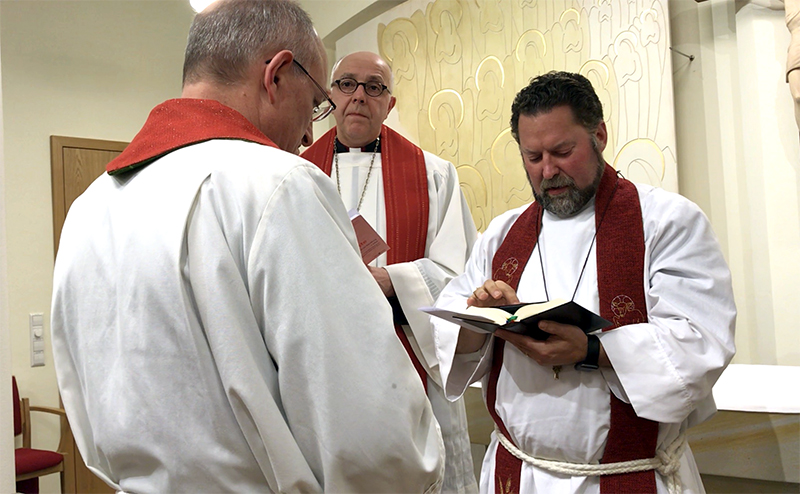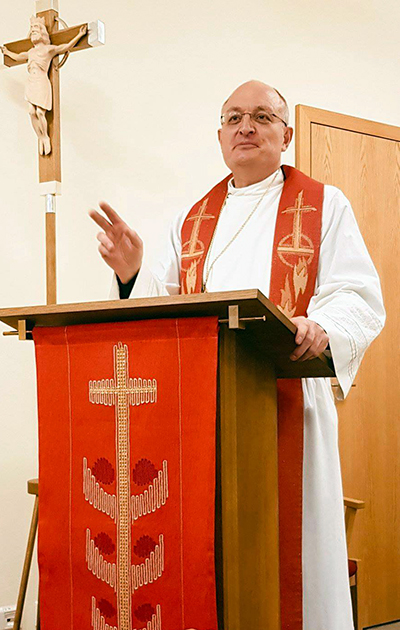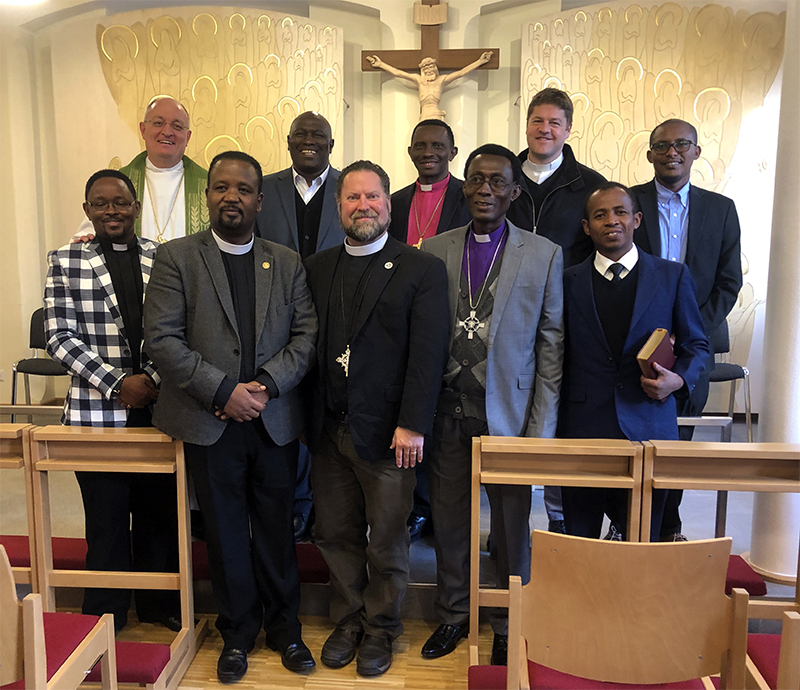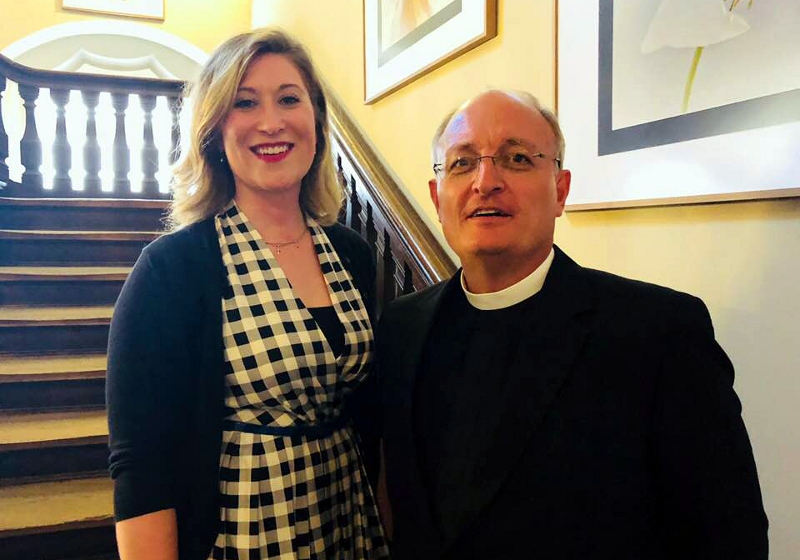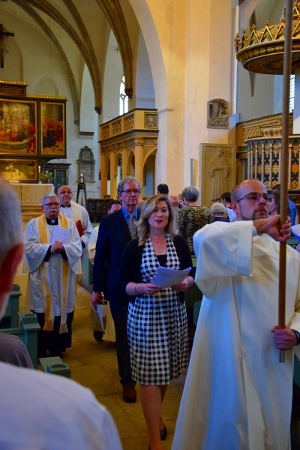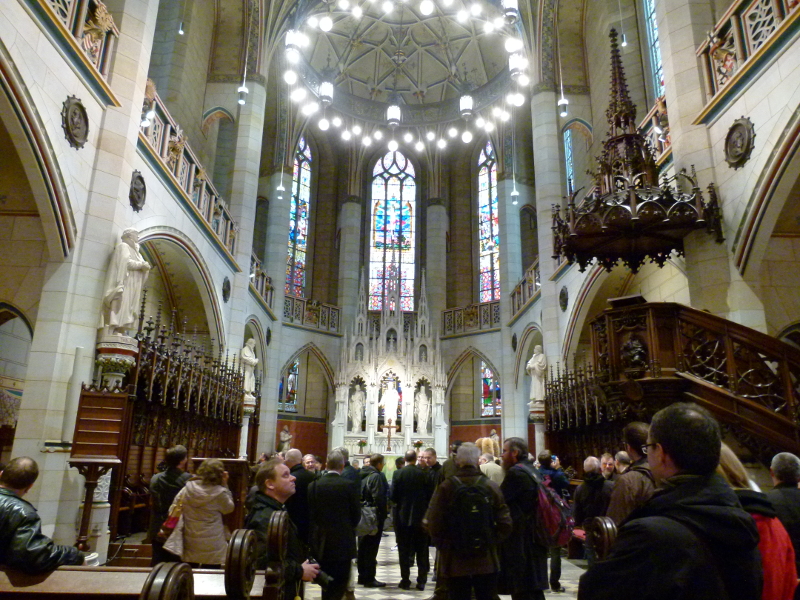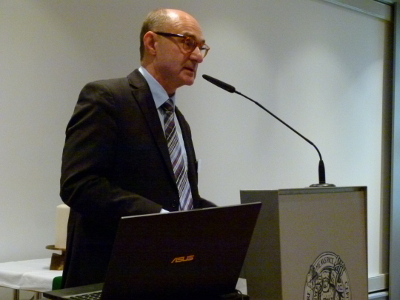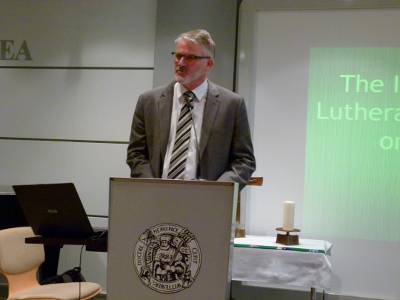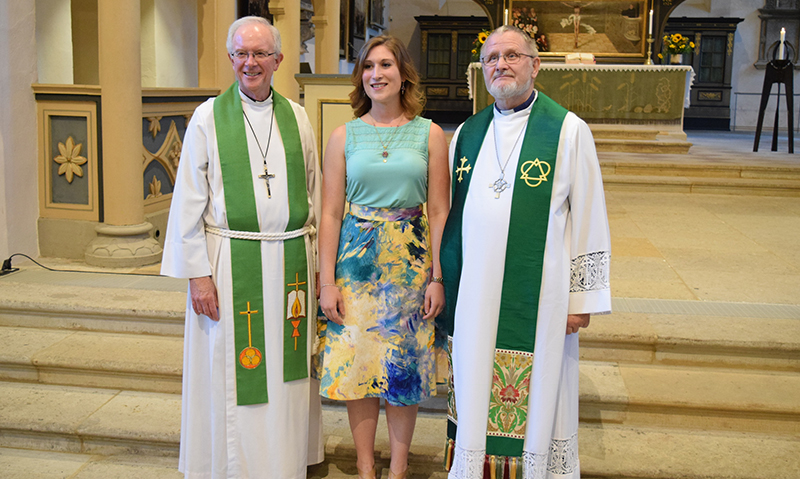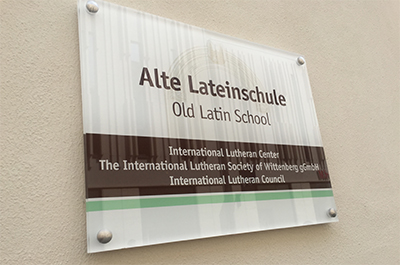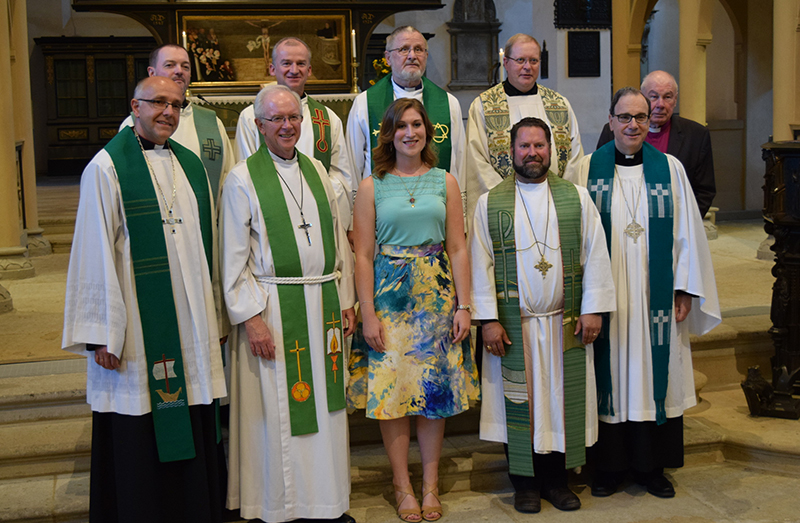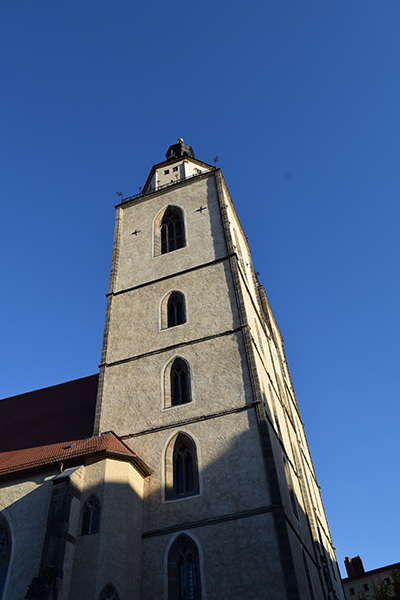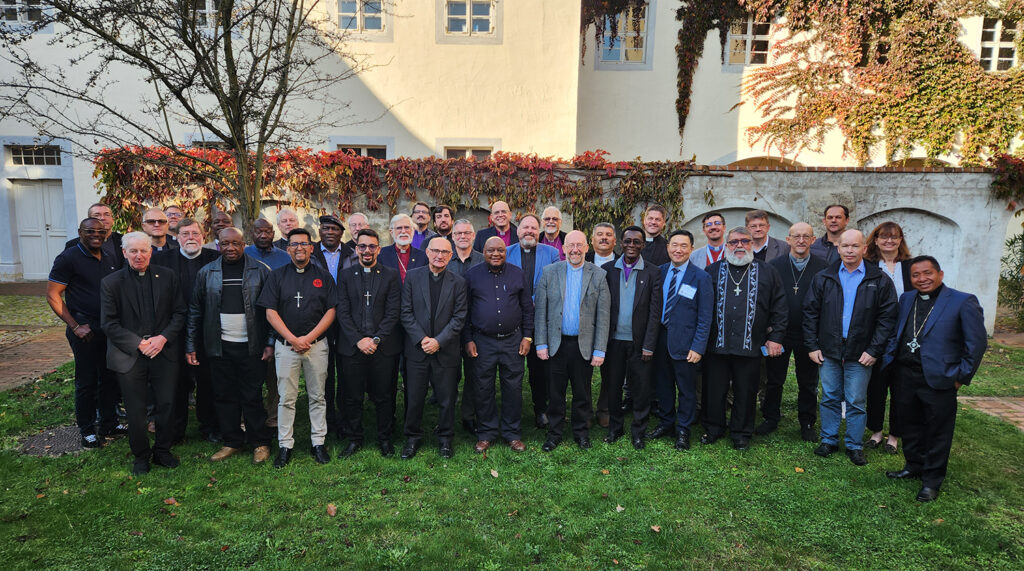
GERMANY – The International Lutheran Council (ILC) held an extraordinary assembly on October 26, 2024, in Wittenberg, Germany, during which time the ILC introduced the Board of Director’s new secretary, heard reports, received two churches into full membership, and made plans for the ILC’s 2025 World Conference.
General Secretary reports, introduces new BOD secretary
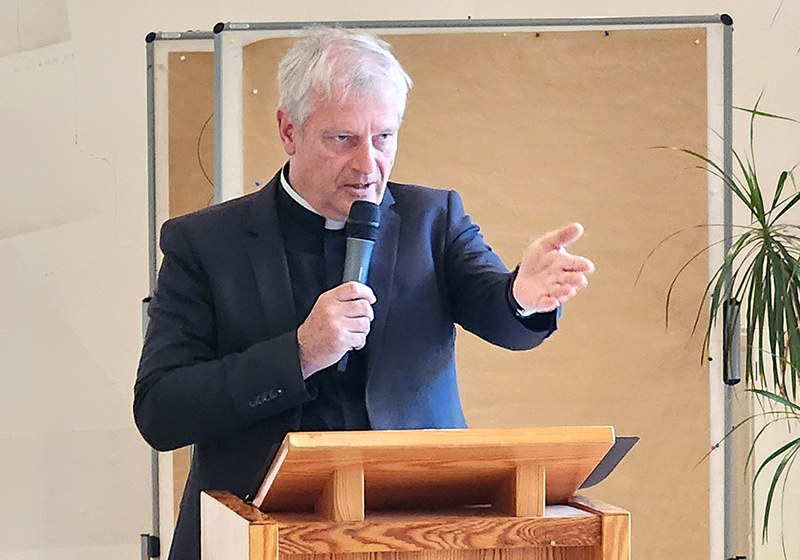
The assembly began with a brief report from the ILC’s General Secretary, Rev. Dr. Klaus Detlev Schulz, outlining the work of the ILC over the past year, focusing especially on Regional Conferences and the 2024 World Seminary Conference. Dr. Schulz also acknowledged some of the new observer member churches in the ILC.
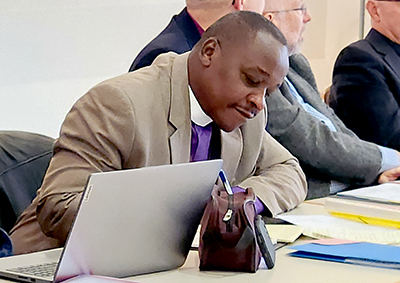
Dr. Schulz then introduced to the assembly the new Secretary of the ILC’s Board of Directors: Bishop Charles Bameka of the Lutheran Church of Uganda (LCU). Bishop Bameka has served as the LCU’s national presiding bishop in Uganda for eight years, most recently having been reelected in 2023.
Bishop Bameka succeeds Bishop John Donkoh of the Evangelical Lutheran Church of Ghana (ELCG), who was elected Secretary during the ILC’s World Conference in 2022. Bishop Donkoh stepped down from the ILC’s Board of Directors earlier this year as his church body prepares for a change in leadership. The assembly in Wittenberg also acknowledged the long service of President Gijsbertus van Hattem of the Evangelical Lutheran Church in Belgium (Evangelisch-Lutherse Kerk in België – ELCG), who served as Secretary from 2009-2022 and has served as Assistant Secretary since then.
Ecumenical Relations
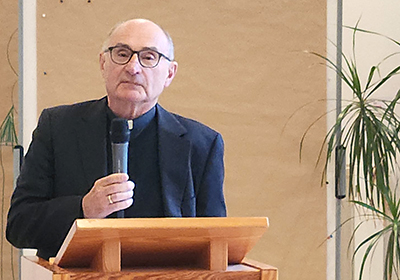
The assembly then heard from Rev. Dr. Werner Klän, who gave a report on the current status of the Concordia-Lutheran – Roman Catholic Augustana Working Group. This is the ecumenical-theological working group which was established following the conclusion of the informal conversations between the ILC and the Roman Catholic Church which took place from 2014-2019. Dr. Klän noted encouraging feedback from ILC member churches on the Final Report which arose from those discussions, and invited additional responses from ILC member churches.
The Augustana Working Group, which is not a formal dialogue commission, held its inaugural meetings in Rome in March 2024. The working topic for the group is: “Catholicity and Apostolicity in the Augsburg Confession, Examined in the Areas of Soteriology (Justification) and Ecclesiology (Ministry, Episcopate, and Ordination): A Joint Lutheran-Catholic Review of the Augsburg Confession in a Pre-Confessional and Ecumenical Perspective.” The meetings are scheduled to take place over four years, with the next meetings to take place in Wittenberg, Germany, from December 9-10, 2024, and in Rome from February 23-26, 2025.
Membership
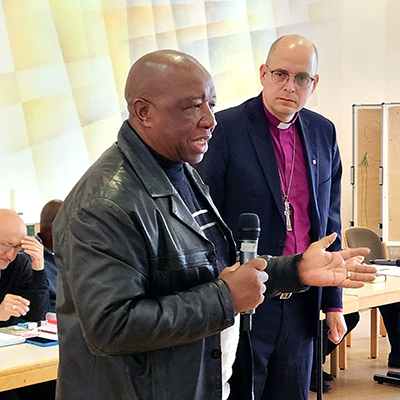
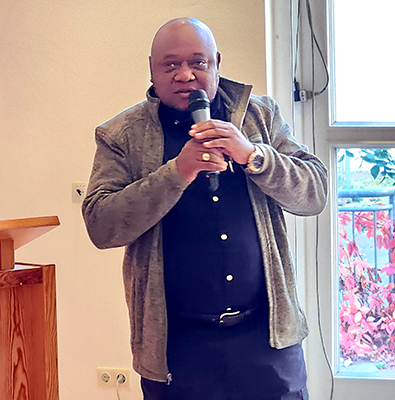
Other business during the assembly included a unanimous vote to receive two churches into full membership in the ILC: the Evangelical Lutheran Synod Church of South Sudan and Sudan (ELCSS/S) and the Confessional Lutheran Church of South Africa (CLCSA). Archbishop Joseph Ochola Omolo of the Evangelical Lutheran Church in Kenya (ELCK)—who serves also as the Africa regional representative on the Board of Directors—introduced the two churches prior to the vote and recommended their acceptance into membership.
The two churches were represented at the ILC assembly by their bishops: ELCSS/S Bishop Peter Anibati Abia and CLCSA Bishop David Tswaedi. Both church bodies had previously been observer members in the ILC, with the ELCSS/S having been accepted as an observer in 2022 and the CLCSA in 2018.
The assembly also reinstated membership for a few church bodies whose membership had lapsed.
Discussions on Fellowship and Bylaw Amendments
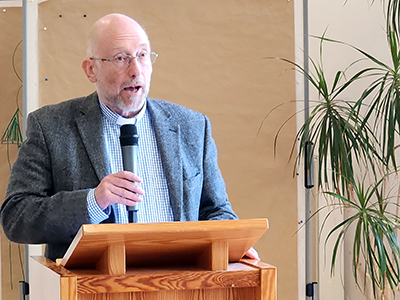
Next on the agenda was a discussion of fellowship, led by Chairman George Samiec of the Evangelical Lutheran Church of England (ELCE). Chairman Samiec is the European regional representative on the ILC’s Board of Directors, and further serves on a subcommittee of the board focused on fellowship, alongside the ILC’s General Secretary, Klaus Detlev Schulz, and ILC Communications Manager, Mathew Block.
Chairman Samiec noted that a suggestion had been made by Lutheran Church–Canada (LCC) that the ILC explore the topic of fellowship. The subcommittee adapted and condensed the Canadian proposal, before distributing it to ILC member churches for discussion and feedback.
The 2024 assembly in Wittenberg continued discussion of the subject, with members from across the globe providing additional insight into their churches’ understanding of fellowship.
ELCE Chairman Samiec also led the next part of the assembly’s agenda, which introduced unrelated amendments to the ILC’s bylaws.
2025 World Conference
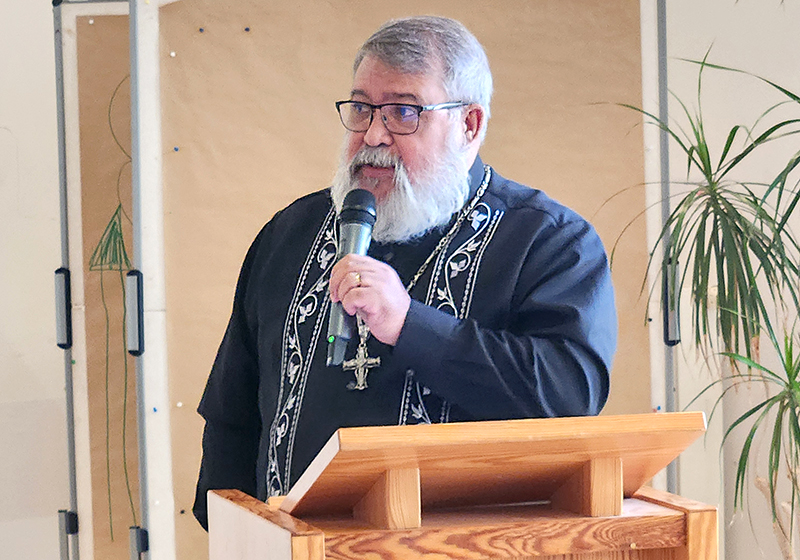
The final order of business for the assembly in Wittenberg was the announcement of the dates and location of next year’s ILC World Conference. The 2025 World Conference will take place September 17-19, 2025 in Bohol, Philippines. The theme for the conference will be “Unity in Christ: Confession and Cooperation in a Fragmented World.”
President Antonio Reyes of the Lutheran Church in the Philippines (LCP) made the announcement. “The members of my church are very excited to welcome you to our country,” he said. “It affords us the chance to meet with all of you, my brothers.” President Reyes also serves as the Asia regional representative on the ILC’s Board of Directors.
Additional information on the 2025 World Conference will be revealed in the months to come.
———————

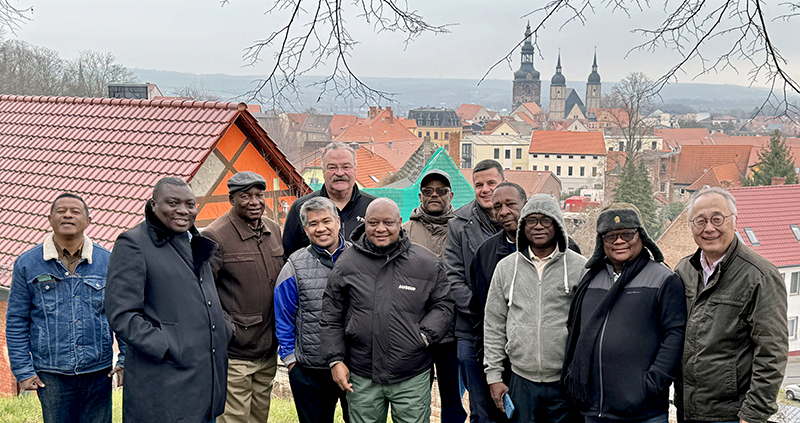
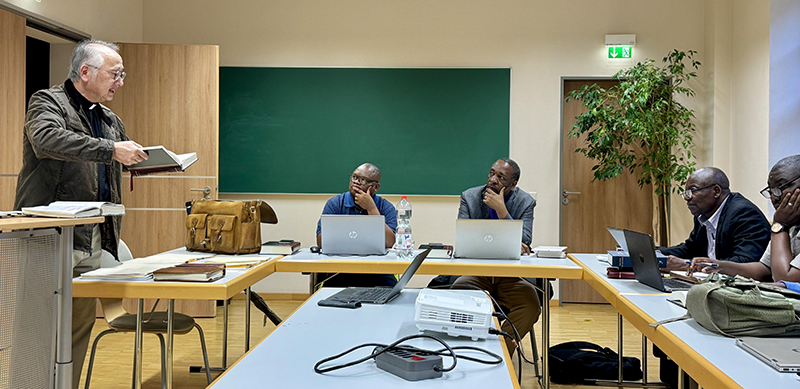
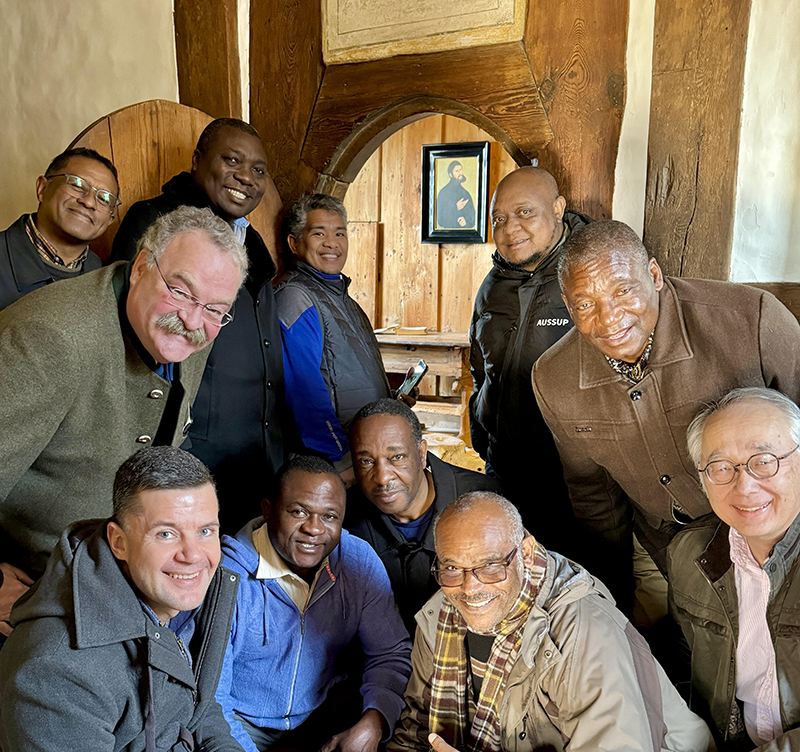
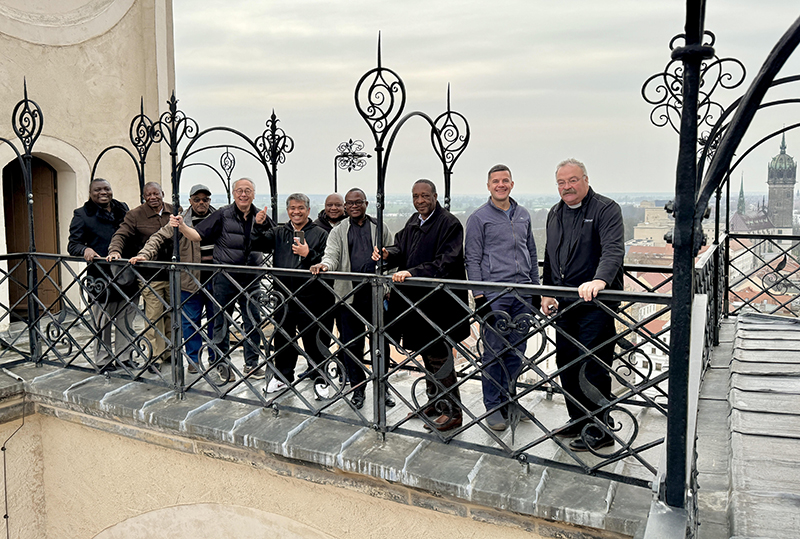
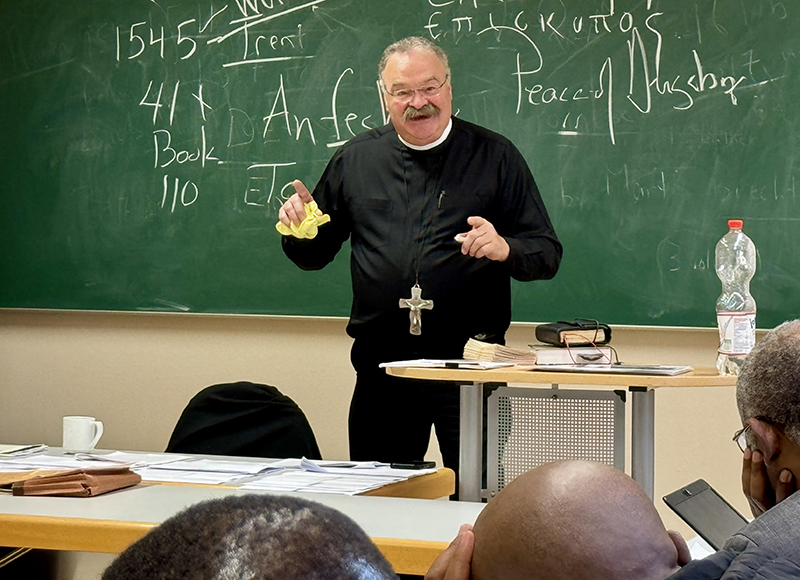

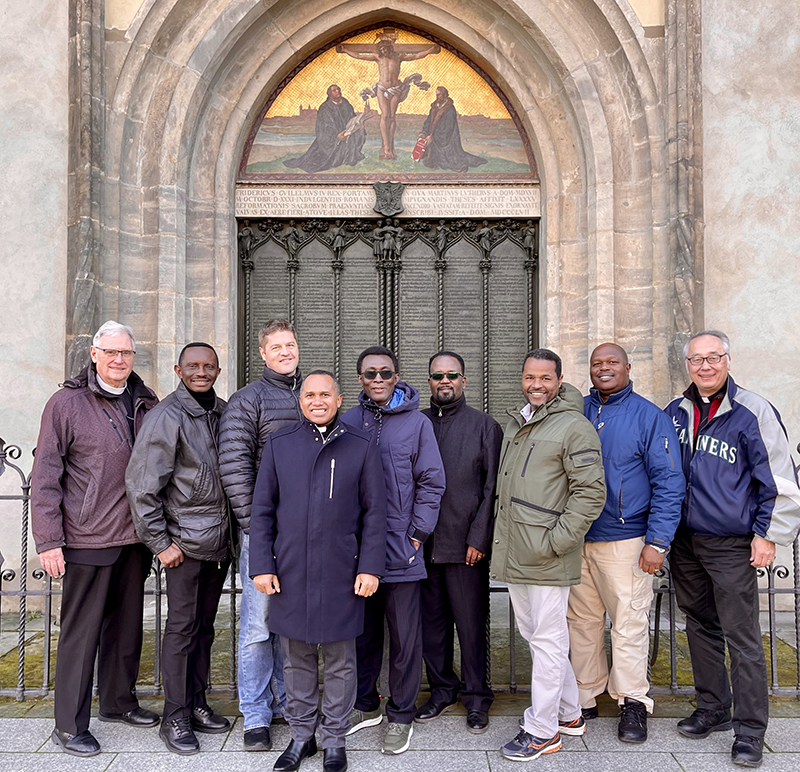
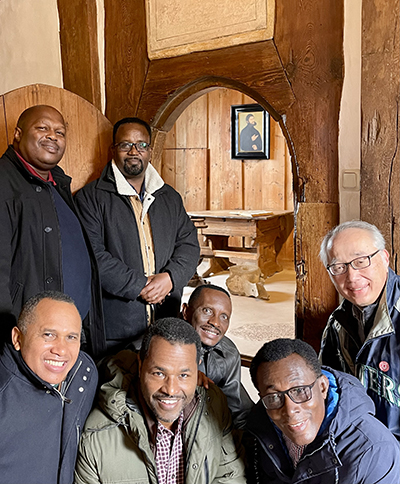
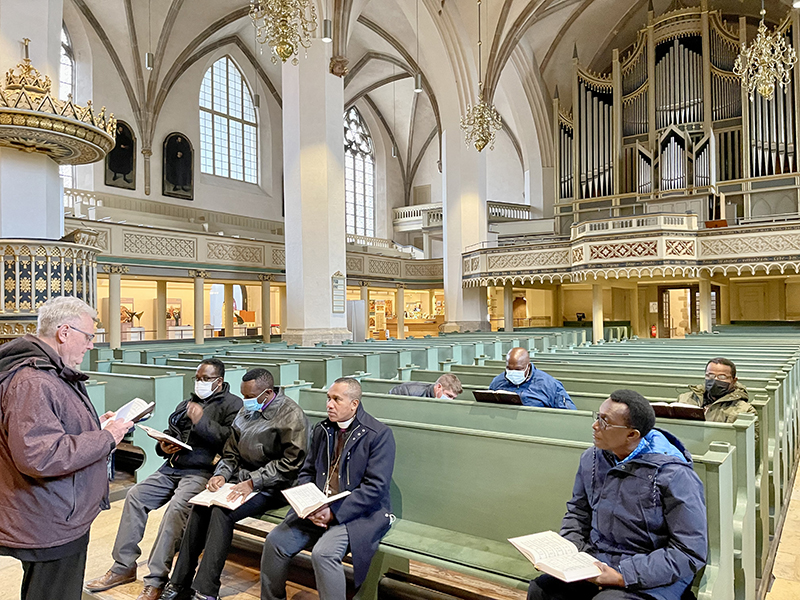
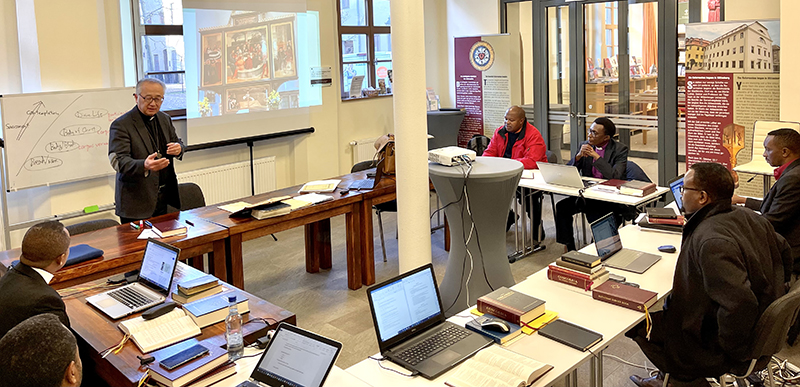
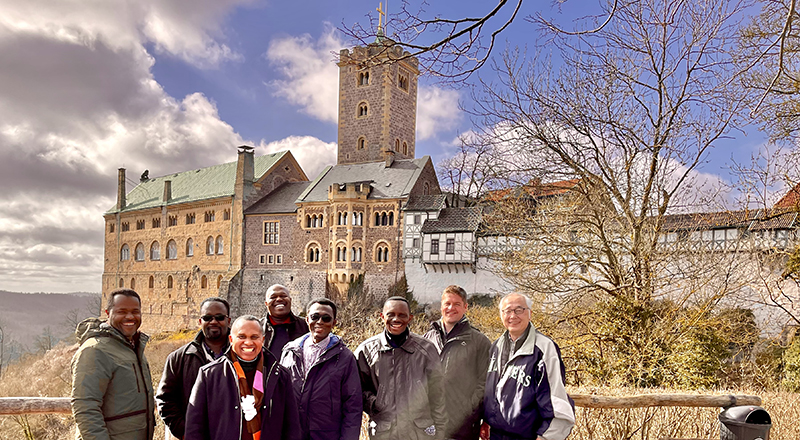
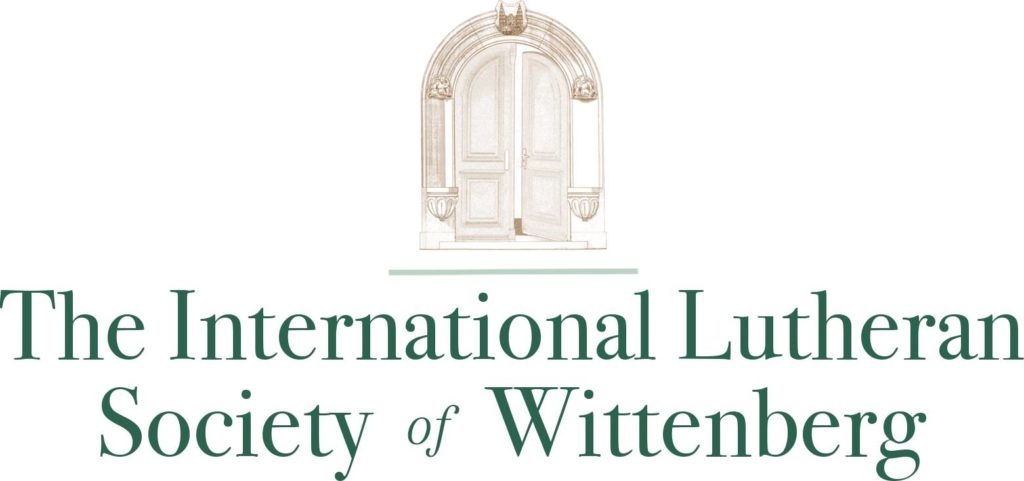
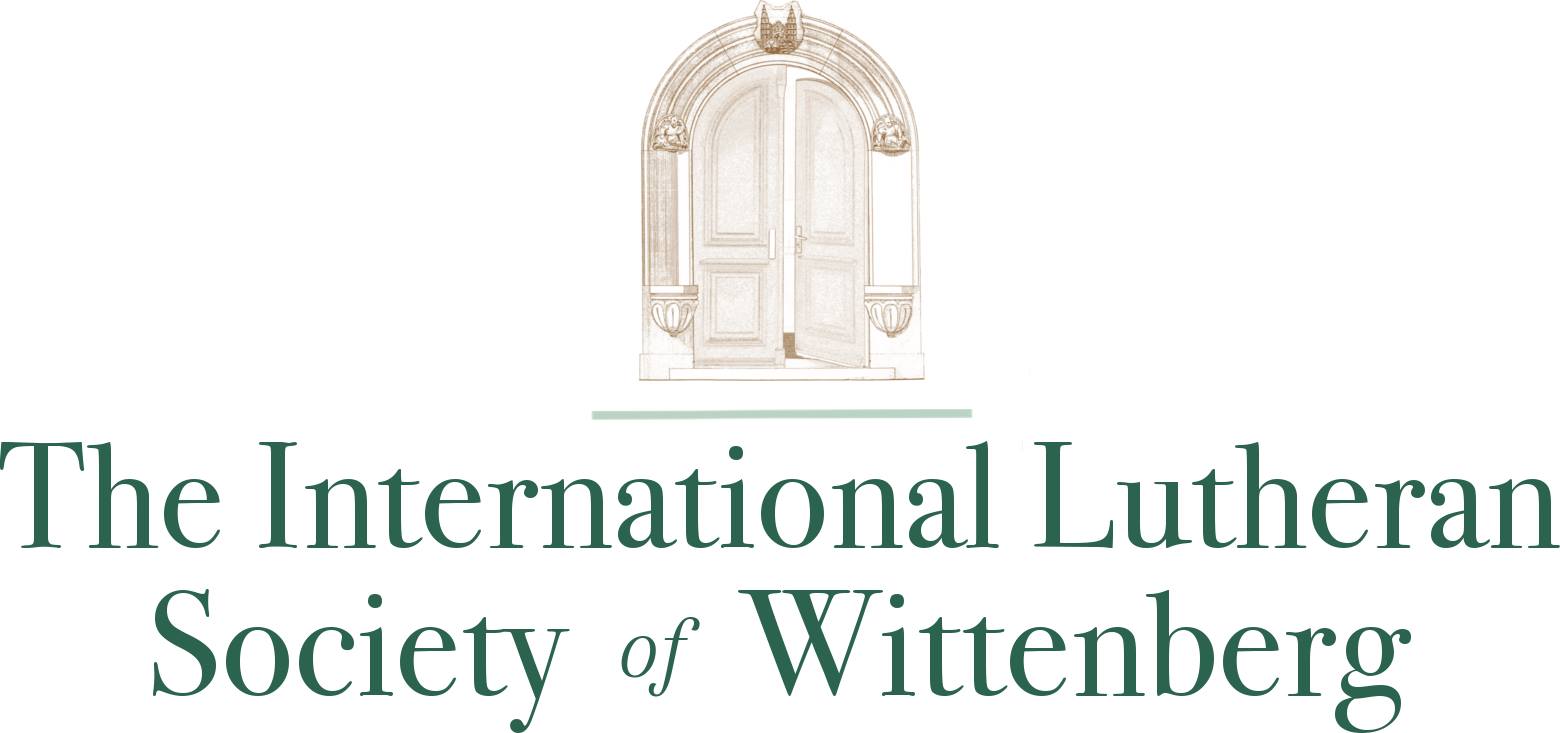
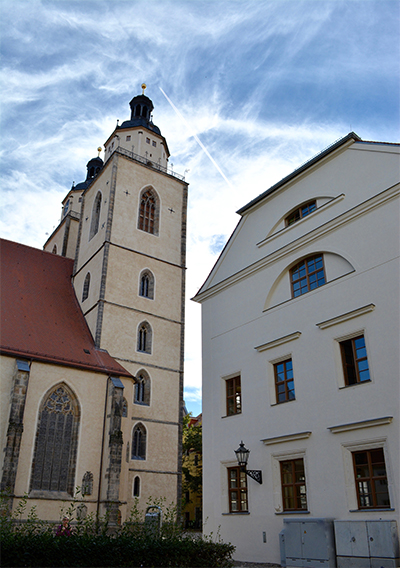
 The OLS was founded as a joint project that included The Lutheran Church—Missouri Synod (LCMS) and the Independent Evangelical Lutheran Church of Germany (SELK). The International Lutheran Council has now purchased an interest equal to that of the LCMS, making the ILC a full partner in the project with SELK and the LCMS.
The OLS was founded as a joint project that included The Lutheran Church—Missouri Synod (LCMS) and the Independent Evangelical Lutheran Church of Germany (SELK). The International Lutheran Council has now purchased an interest equal to that of the LCMS, making the ILC a full partner in the project with SELK and the LCMS.